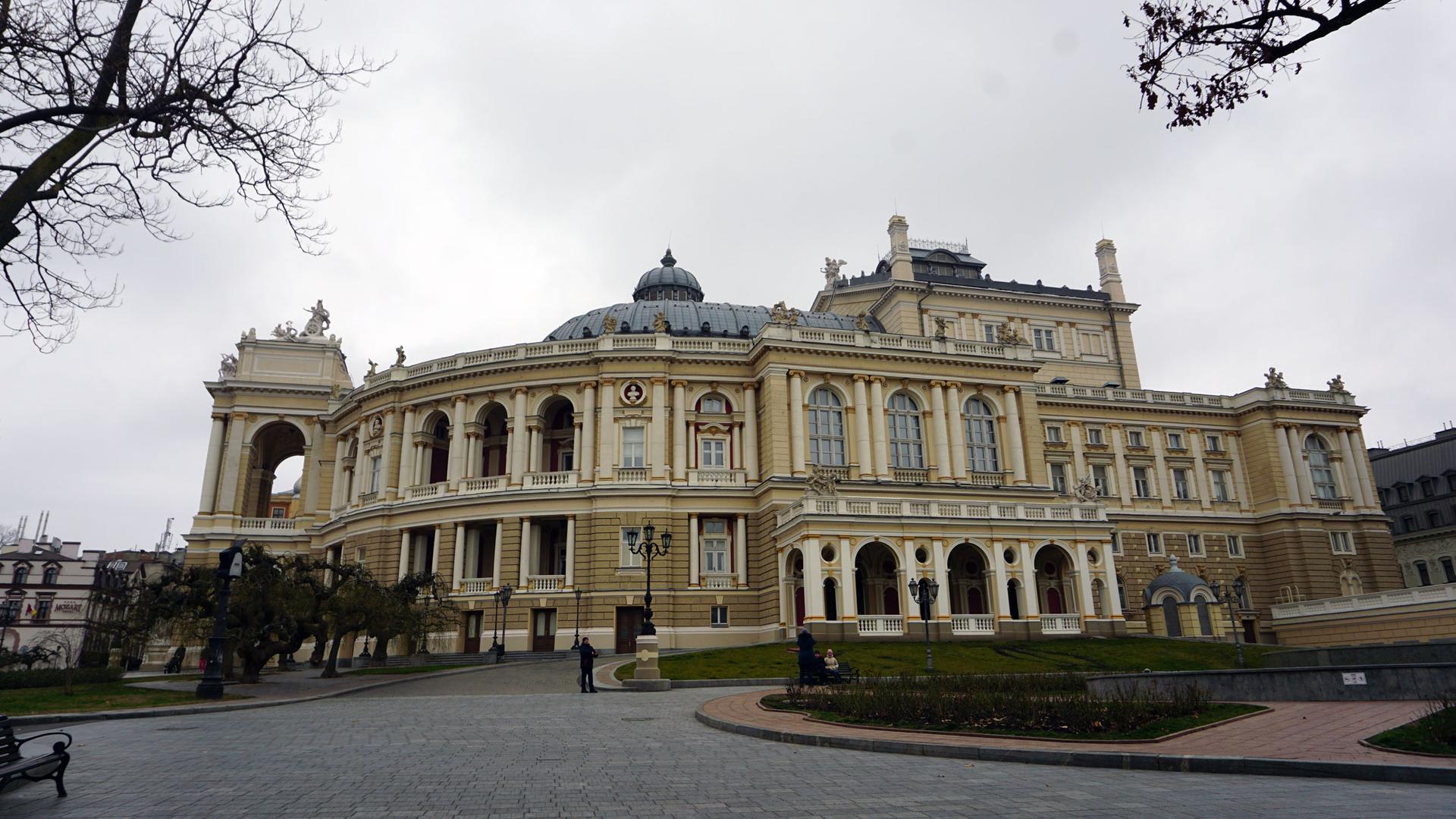At a rehearsal inside Odesa’s opera house, the orchestra practices “Blue Danube,” by Johann Strauss, as the choir sings the original lyrics in German.
During a rehearsal, it’s easy to forget that Ukraine is a country at war.
Inside the elegant, neo-Baroque building from the late 19th century, the conflict outside feels distant.
The opera house is the heart of Odesa, said Lyudmila Serhiychuk, the assistant director of the Odesa National Academic Opera and Ballet Theater.
She said that as long as its heart keeps beating, it means the city itself is alive.
Odesa, home to Ukraine’s busiest port, became an early target of Russia’s military when it invaded the country a year ago. But the city — with its reputation for its humor, arts and culture — has remained under Ukrainian control throughout this war. And through it all, Odesa continues to be a central cultural hub.
Serhiychuk and her entire family all live in the city.
She said they were shocked when Russia invaded, but chose to stay and endured months of fear and uncertainty early on in the war.

Singer Dmytro Pavlyuk said that the opera house had to shut down for the first three months after the invasion.
But during that time, he said, the choir still continued to perform around Odesa, including parks and city squares.
They put on performances for Ukrainian troops and displaced people fleeing from other parts of the country.

Three months later, the opera house reopened. But audiences were restricted to the number of people who could fit into the opera house’s bomb shelter.
On one occasion, Pavlyuk said, the air raid siren went off during a performance. Everyone went down to the shelter and stayed for more than an hour. And after the siren ended, they returned to their seats to enjoy the rest of the opera.

Vitaliy Bilyy, another singer, said it was necessary to accept this as a new reality.
“We just understood, you know, it’s my job, I need to do it and that’s it. It’s my occupation,” he said, adding that waiting at home would have felt worse.
Bilyy said he feels lucky to live in a part of Ukraine that is relatively safe.
He’s also thankful that he can still perform for live audiences, especially after having to shut down last year.
“I think it’s just [that] maybe somebody [can] come here to forget,” Bilyy said.
“You know, for [these] three to four hours, just to forget about this terrible [situation] right now and watch something beautiful — to listen to beautiful music,” he explained.
Russia’s military continues to target Ukraine’s electric grid, and power outages happen all the time in Odesa.
As the war continues, Bilyy said that he doesn’t plan too far ahead. Instead, he and others in the city are more focused on living for today, and dealing with the uncertainty of tomorrow.
With a snap of a finger, he knows how quickly things can change — even in the heart of Odesa.
Editor’s note: Max Tkachenko contributed to this report.
